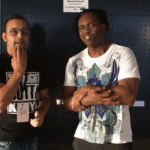The 36 questions in the study are broken up into three sets, with each set intended to be more
probing than the previous one. The idea is that mutual vulnerability fosters closeness. To quote the study’s authors, “One key pattern associated with the development of a close relationship among peers is sustained, escalating, reciprocal, personal selfdisclosure.” Allowing oneself to be vulnerable with another person can be exceedingly difficult, so this exercise forces the issue.
The final task Ms. Catron and her friend try — staring into each other’s eyes for four minutes — is less well documented, with the suggested duration ranging from two minutes to four. But Ms. Catron was unequivocal in her recommendation. “Two minutes is just enough to be terrified,” she told me. “Four
really goes somewhere.”
Amazon #ads

Set 1
- Given the choice of anyone in the world, whom would you want as a dinner
guest? - Would you like to be famous? In what way?
- Before making a telephone call, do you ever rehearse what you are going to
say? Why? - What would constitute a “perfect” day for you?
- When did you last sing to yourself? To someone else?
- If you were able to live to the age of 90 and retain either the mind or body of a
30-year-old for the last 60 years of your life, which would you want? - Do you have a secret hunch about how you will die?
- Name three things you and your partner appear to have in common.
- For what in your life do you feel most grateful?
- If you could change anything about the way you were raised, what would it
be? - Take four minutes and tell your partner your life story in as much detail as
possible. - If you could wake up tomorrow having gained any one quality or ability, what
would it be?
Set 2
- If a crystal ball could tell you the truth about yourself, your life, the future or
anything else, what would you want to know? - Is there something that you’ve dreamed of doing for a long time? Why
haven’t you done it? - What is the greatest accomplishment of your life?
- What do you value most in a friendship?
- What is your most treasured memory?
- What is your most terrible memory?
- If you knew that in one year you would die suddenly, would you change
anything about the way you are now living? Why? - What does friendship mean to you?
- What roles do love and affection play in your life?
- Alternate sharing something you consider a positive characteristic of your
partner. Share a total of five items. - How close and warm is your family? Do you feel your childhood was happier
than most other people’s? - How do you feel about your relationship with your mother?
Set 3
- Make three true “we” statements each. For instance, “We are both in this
room feeling … “ - Complete this sentence: “I wish I had someone with whom I could share … “
- If you were going to become a close friend with your partner, please share
what would be important for him or her to know. - Tell your partner what you like about them; be very honest this time, saying
things that you might not say to someone you’ve just met. - Share with your partner an embarrassing moment in your life.
- When did you last cry in front of another person? By yourself?
- Tell your partner something that you like about them already.
- What, if anything, is too serious to be joked about?
- If you were to die this evening with no opportunity to communicate with
anyone, what would you most regret not having told someone? Why haven’t you
told them yet? - Your house, containing everything you own, catches fire. After saving your
loved ones and pets, you have time to safely make a final dash to save any one
item. What would it be? Why? - Of all the people in your family, whose death would you find most disturbing?
Why? - Share a personal problem and ask your partner’s advice on how he or she
might handle it. Also, ask your partner to reflect back to you how you seem to be
feeling about the problem you have chosen.
Bonus: Making Marriage Work: Based on Scientific Studies (Summary) – Dr. John Gottman



